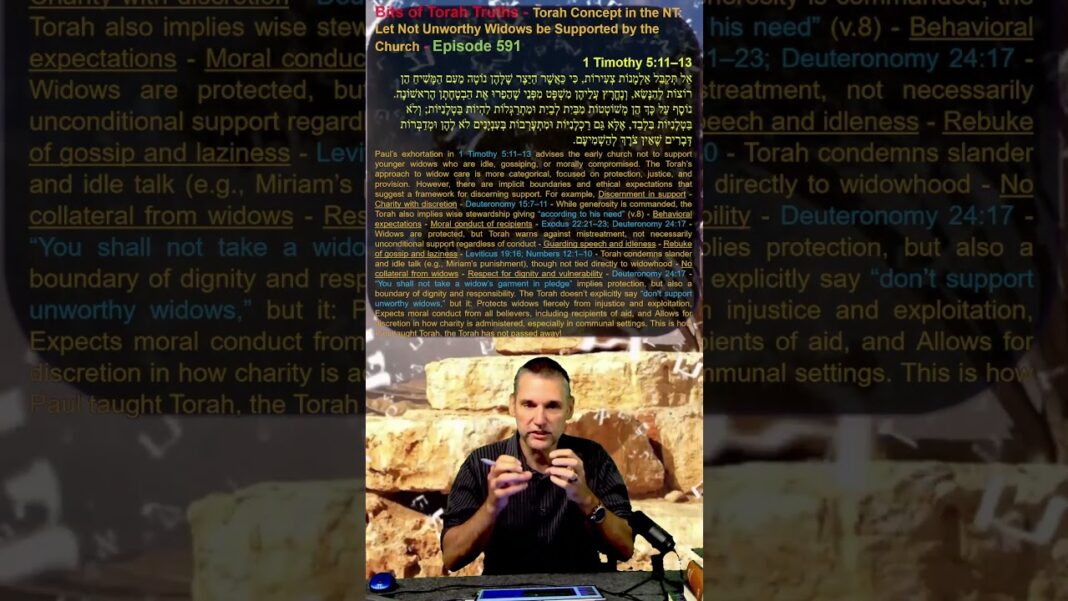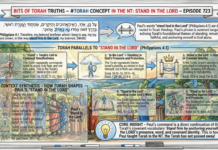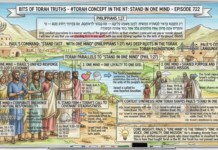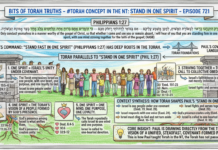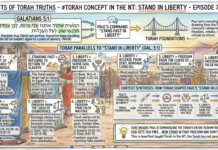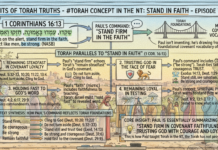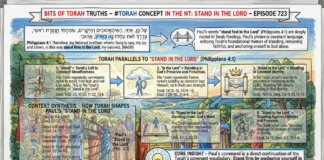Bits of Torah Truths – Torah Concept in the NT: Let Not Unworthy Widows be Supported by the Church – Episode 591
1 Timothy 5:11–13
אַל תְּקַבֵּל אַלְמָנוֹת צְעִירוֹת, כִּי כַּאֲשֶׁר הַיֵּצֶר שֶׁלָּהֶן נוֹטֶה מֵעִם הַמָּשִׁיחַ הֵן רוֹצוֹת לְהִנָּשֵׂא, וְנֶחֱרָץ עֲלֵיהֶן מִשְׁפָּט מִפְּנֵי שֶׁהֵפֵרוּ אֶת הַבְטָחָתָן הָרִאשׁוֹנָה. נוֹסָף עַל כָּךְ הֵן מְשׁוֹטְטוֹת מִבַּיִת לְבַיִת וּמִתְרַגְּלוֹת לִהְיוֹת בַּטְלָנִיּוֹת; וְלֹא בַּטְלָנִיּוֹת בִּלְבַד, אֶלָּא גַּם רַכְלָנִיּוֹת וּמִתְעָרְבוֹת בְּעִנְיָנִים לֹא לָהֶן וּמְדַבְּרוֹת דְּבָרִים שֶׁאֵין צֹרֶךְ לְהַשְׁמִיעָם.
#torah #torahwisdom #torahtruth #torahforlife #torah4you #torahtruth
1 Timothy 5:11–13
5:11 But refuse to put younger widows on the list, for when they feel sensual desires in disregard of Christ, they want to get married, 5:12 thus incurring condemnation, because they have set aside their previous pledge. 5:13 At the same time they also learn to be idle, as they go around from house to house; and not merely idle, but also gossips and busybodies, talking about things not proper to mention. (NASB)
https://www.matsati.com/index.php/category/bits-of-torah-truths/
Paul’s exhortation in 1 Timothy 5:11–13 advises the early church not to support younger widows who are idle, gossiping, or morally compromised. The Torah’s approach to widow care is more categorical, focused on protection, justice, and provision. However, there are implicit boundaries and ethical expectations that suggest a framework for discerning support. For example, Discernment in support – Charity with discretion – Deuteronomy 15:7–11 – While generosity is commanded, the Torah also implies wise stewardship giving “according to his need” (v.8) – Behavioral expectations – Moral conduct of recipients – Exodus 22:21–23; Deuteronomy 24:17 – Widows are protected, but Torah warns against mistreatment, not necessarily unconditional support regardless of conduct – Guarding speech and idleness – Rebuke of gossip and laziness – Leviticus 19:16; Numbers 12:1–10 – Torah condemns slander and idle talk (e.g., Miriam’s punishment), though not tied directly to widowhood – No collateral from widows – Respect for dignity and vulnerability – Deuteronomy 24:17 – “You shall not take a widow’s garment in pledge” implies protection, but also a boundary of dignity and responsibility. The Torah doesn’t explicitly say “don’t support unworthy widows,” but it: Protects widows fiercely from injustice and exploitation, expects moral conduct from all believers, including recipients of aid, and allows for discretion in how charity is administered, especially in communal settings. This is how Paul taught Torah, the Torah has not passed away!
